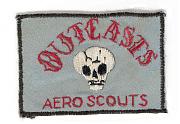SLAM was first presented to me when I was in ROTC back in the early 90's as a fully factual sage on military matters, I like my peers read it all and absorbed it, taking it on board as truth. Yet as I've read and researched since then his 'facts' have been challenged. Challenged to the point that his 'facts' are actually fictions. SLAM's writings have been the bedrock of many military concepts and ideas. For instance his writing on marksmanship and shooting (or who shoots) under fire have been/are taught in many military schools. YET his research or lack there of has been entirely discredited. YET the books remain on the Marine Corps Commandants reading list.
Has anyone researched a definitive answer here? Was SLAM a charlatan? If so how have his teachings affected our (US) way of warfighting? Positive or negative? If he fabricated his facts was he still correct?
http://www.theppsc.org/Grossman/SLA_Marshall/Main.htm
-T
Note: Only The Soldiers Load and The Armed Forces Officer remain on the reading list. Men Against Fire does not.













 . I further suspect that you know how "them" is. "Them" is that otherwise faceless, nameless group of authorities to whom we appeal whenever we don't really want to put our own necks, reputations, etc. on the line. Our parents invoked "them" all the time, and we probably do as well when we try to impart the hard lessons to our children. For example:
. I further suspect that you know how "them" is. "Them" is that otherwise faceless, nameless group of authorities to whom we appeal whenever we don't really want to put our own necks, reputations, etc. on the line. Our parents invoked "them" all the time, and we probably do as well when we try to impart the hard lessons to our children. For example: 

Bookmarks